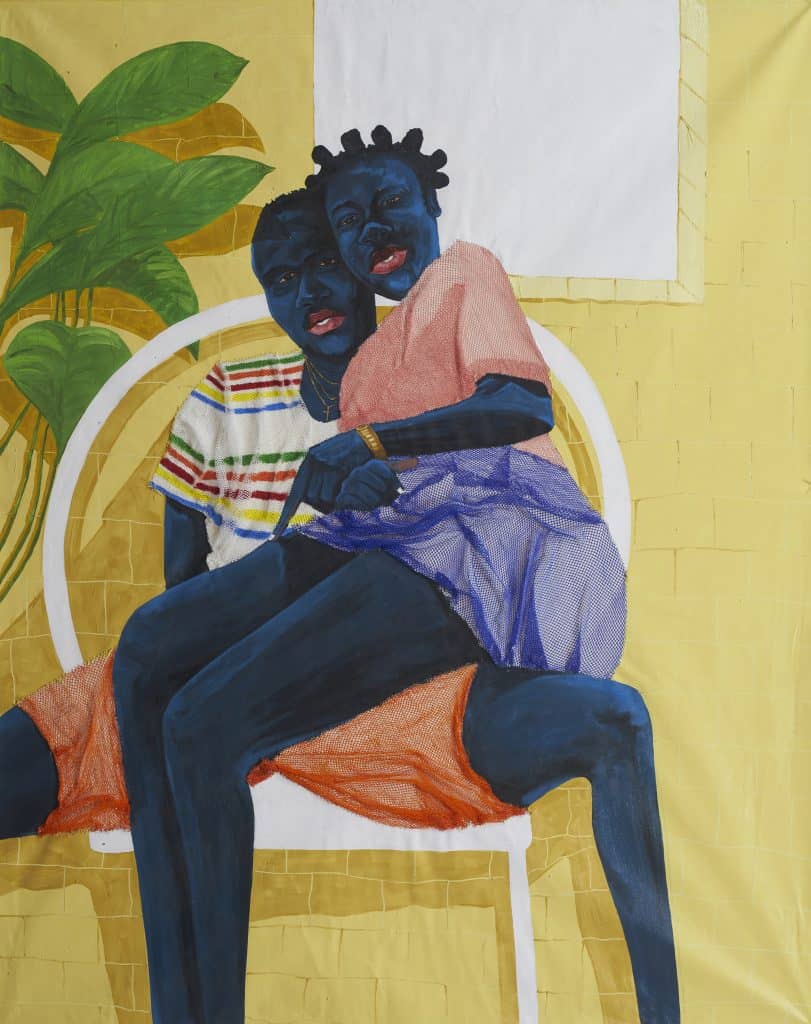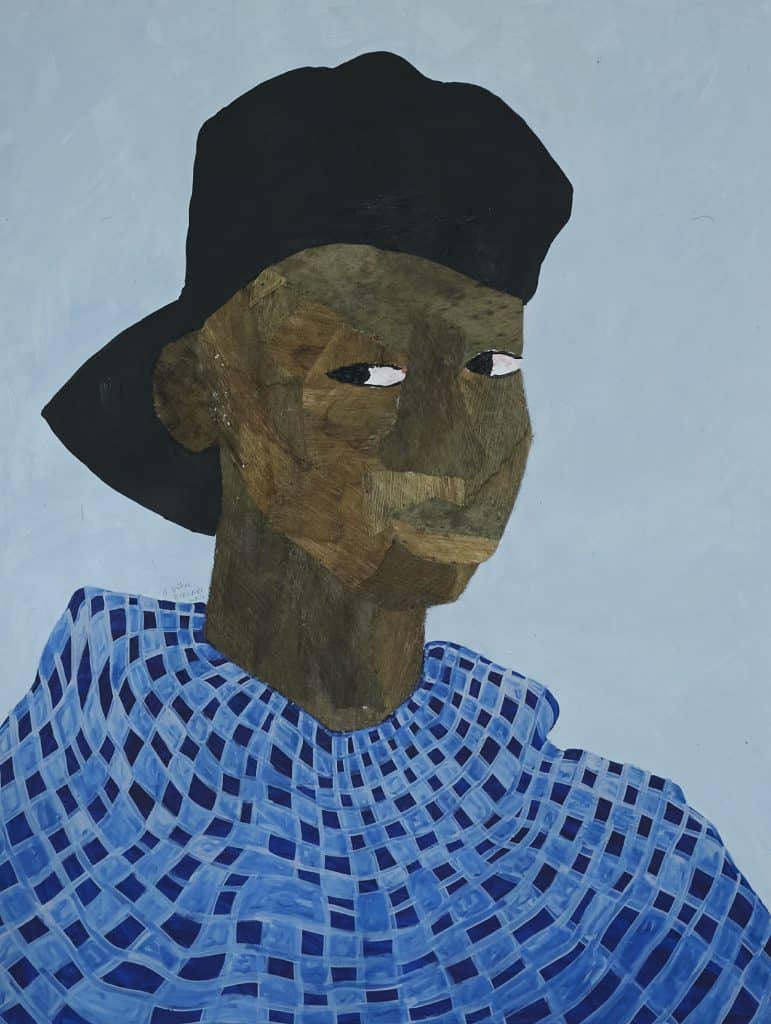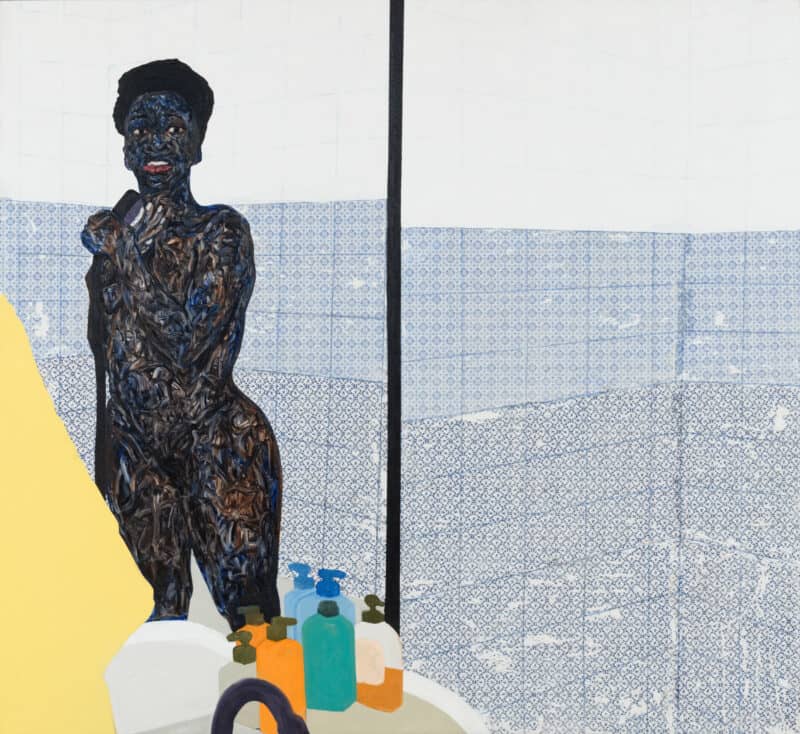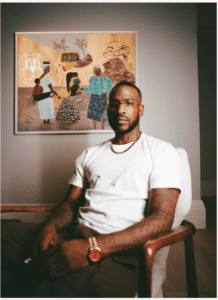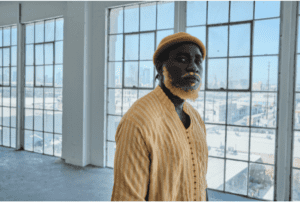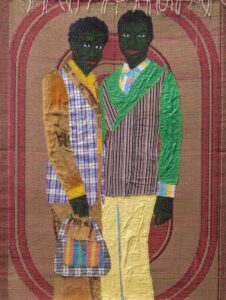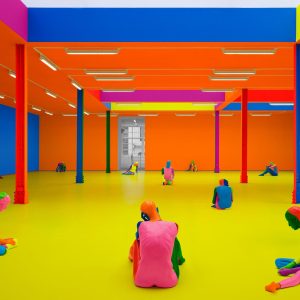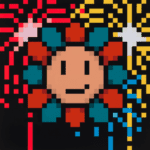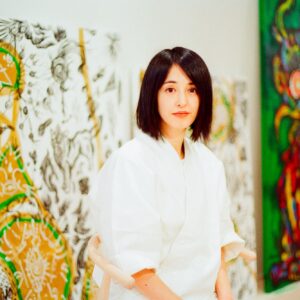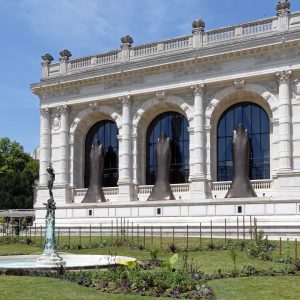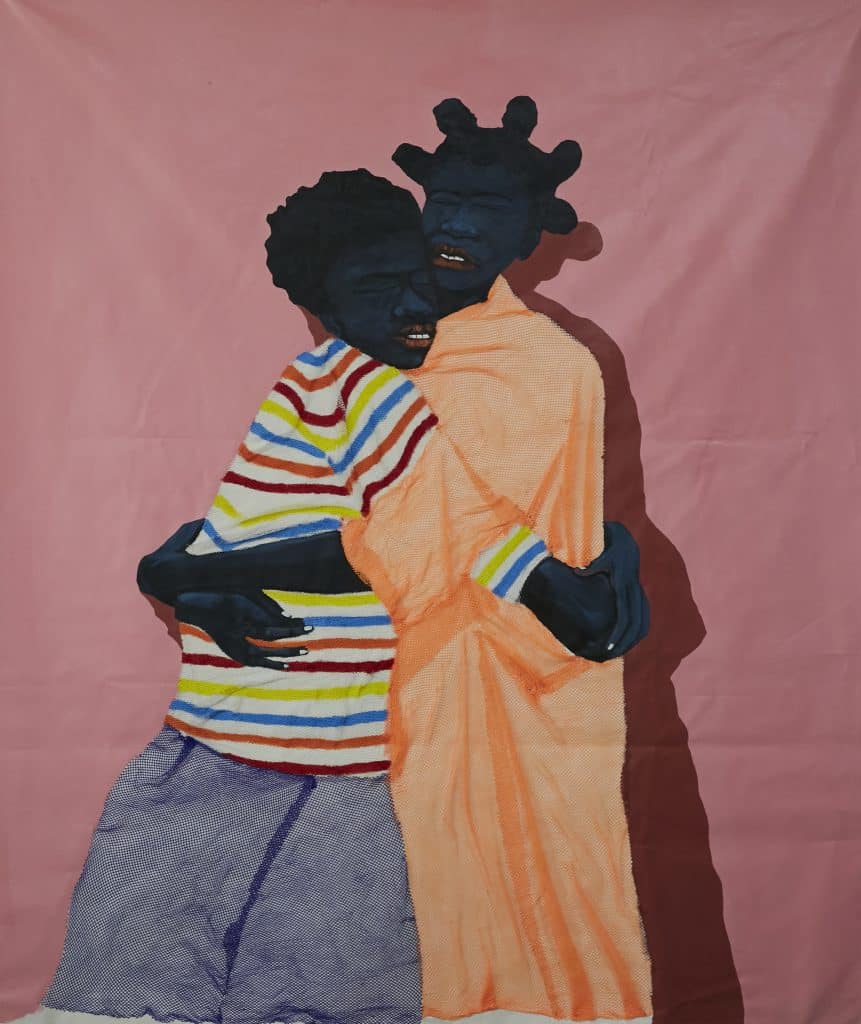
Could You be Loved is a two-person exhibition at Gallery 57 featuring emerging Ghanaian artists Adjei Tawiah & Aplerh-Doku Borlabi. Featuring a series of figurative paintings some bordering on the abstract the exhibition investigates ideas of identity, fashion, togetherness and the need to be loved. All from a Ghanaian perspective but with a gaze that is universal. Adjei Tawiah uses a technique he calls ‘sponge martial’ which enables him to produce brightly coloured yet delicately textured portraits. Aplerh-Doku Borlabi uses oil paint and coconut husk on canvas.
The intrinsic properties of the coconut husk’s multiple layers, longhairs, and varying shades of brown whimsically render skin texture and bone structure, while emulating the way natural light surfaces on the skin.
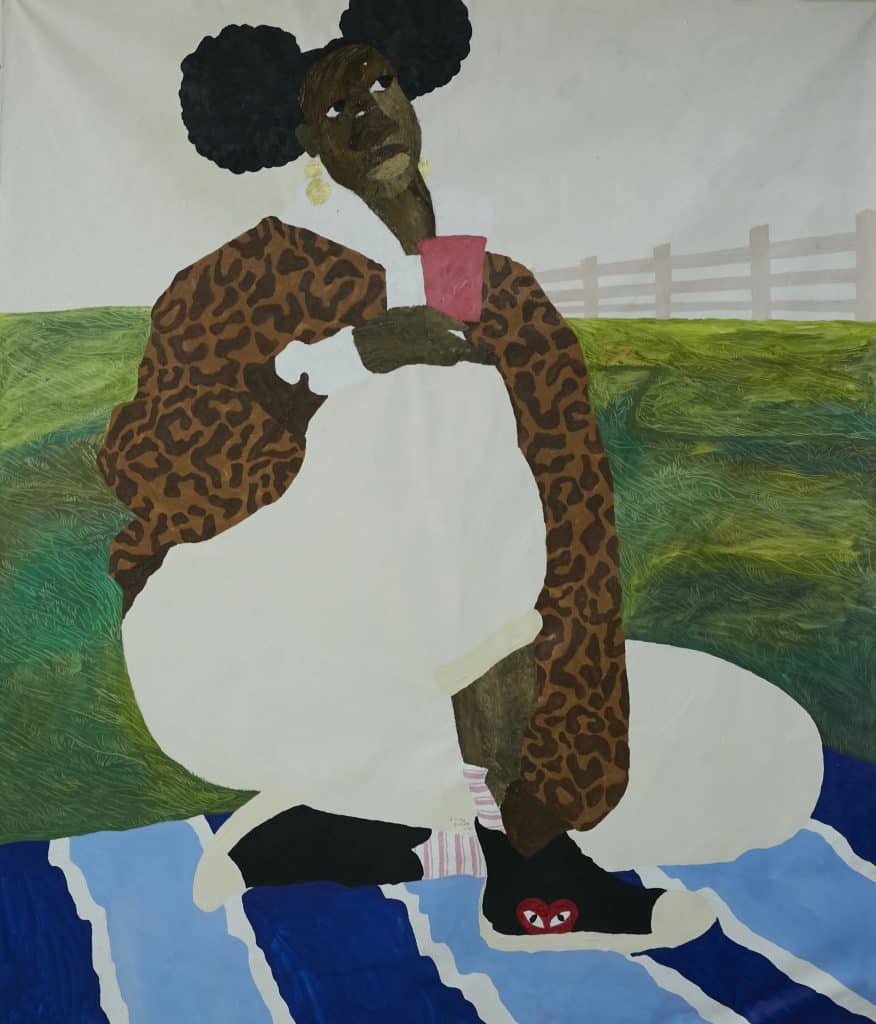
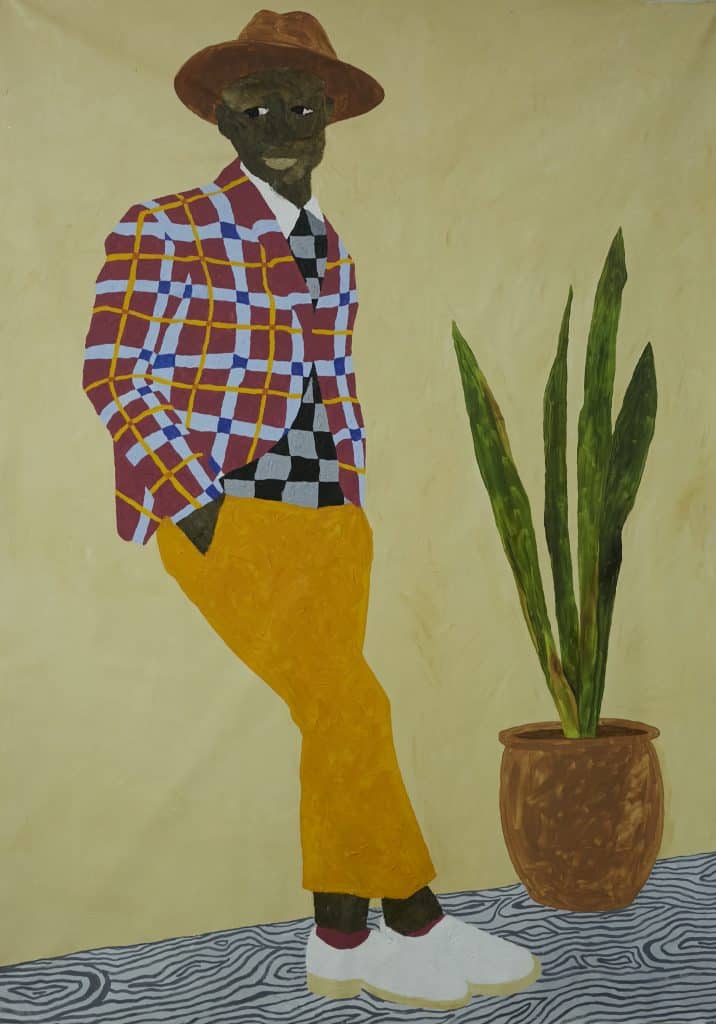
Adjei Tawiah & Aplerh-Doku Borlabi Could You Be Loved – June 17th at Gallery 1957 – gallery1957.com
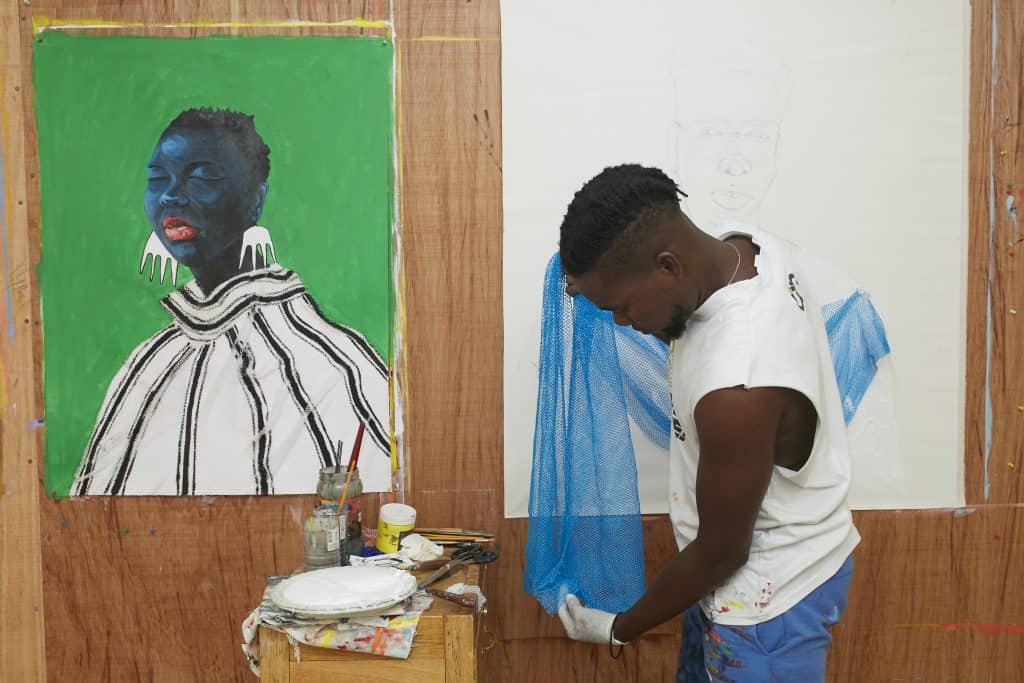
Adjei Tawiah (b.1987) is a Ghanaian artist living and working in Accra. Using a technique, he calls ‘sponge martial’ – an approach inspired by the experience of watching his mother’s body being cleansed in a mortuary and evoking a figurative cleansing of negative thought processes – he creates brightly coloured yet delicately textured portraits across mixed media. @adjeitawaiah
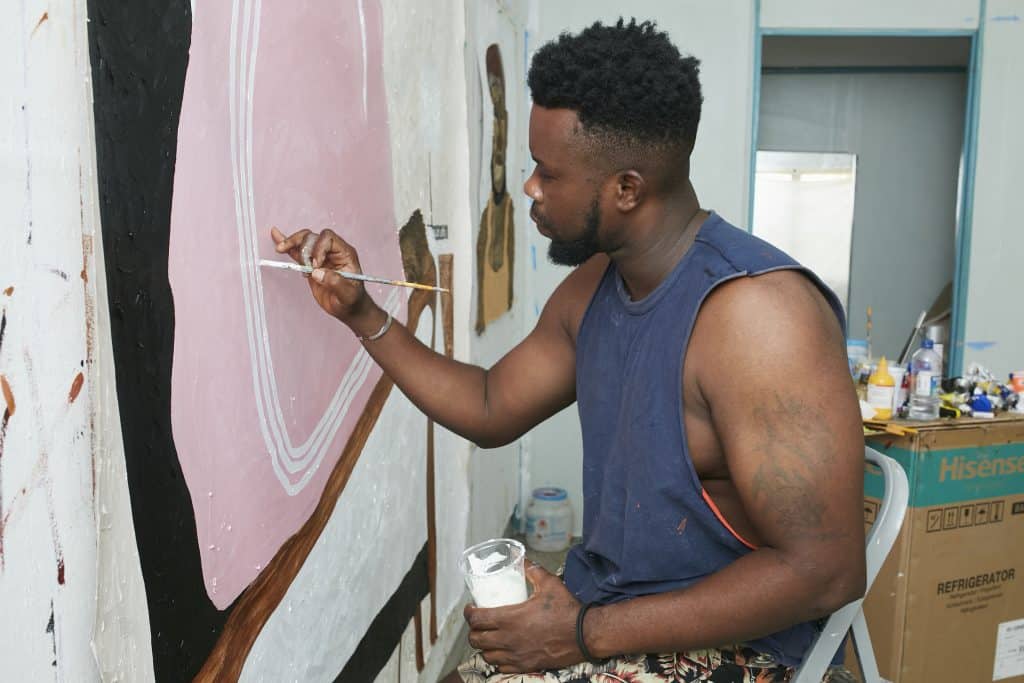
Aplerh-Doku Borlabi (b.1987, Ghana) was formally trained at Ghanatta College of Arts and Design, the alma mater of his mentor, acclaimed contemporary artist, Amaoko Boafo. Borlabi’s early works applied his foundational learning in academic painting, creating naturalistic compositions, and for years he grappled with finding a visual language that felt authentic. After 7 years of painting, Borlabi turned to his natural environment to embody his own culture and ethnic identity. Growing up in the CoCo Beach area of Accra, the coconut tree and fruit is a part of the artist’s daily visual experience, and after spending a day sketching at the beach recently, the thought of using the coconut in his work emerged. From a distance, the mixed media works of oil paint and coconut husk on canvas, appear as richly toned brown skin. The intrinsic properties of the coconut husk’s multiple layers, longhairs, and varying shades of brown whimsically render skin texture and bone structure, while emulating the way natural light surfaces on the skin. With one medium, the artist was able to capture the physical colour complexities of black people’s skin, and visually narrate the physical organic connections of humanity, and plant life. Metaphorically, the coconut husks contemplate the tension between what is disregarded, discarded, and deemed ugly, and what is natural, strong, complex, multidimensional, and beautiful. Echoing prideful statements, such a Black is Beautiful, Borlabi captures the joy of the human experience lived in Black people globally, Ghana, and the continent at large. @dokuborlabi
